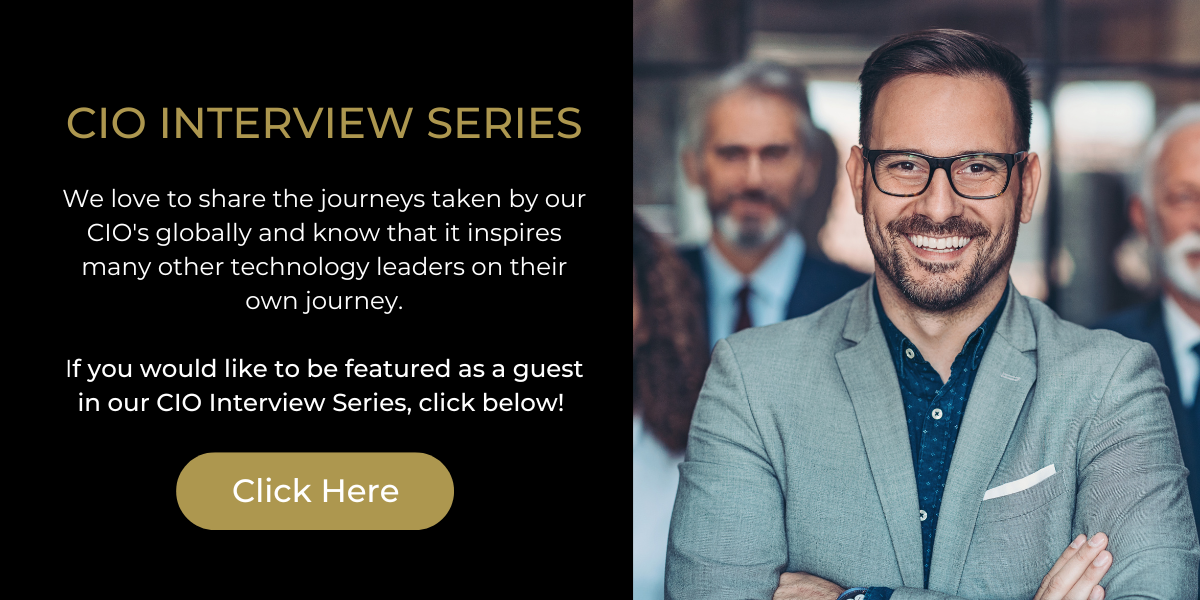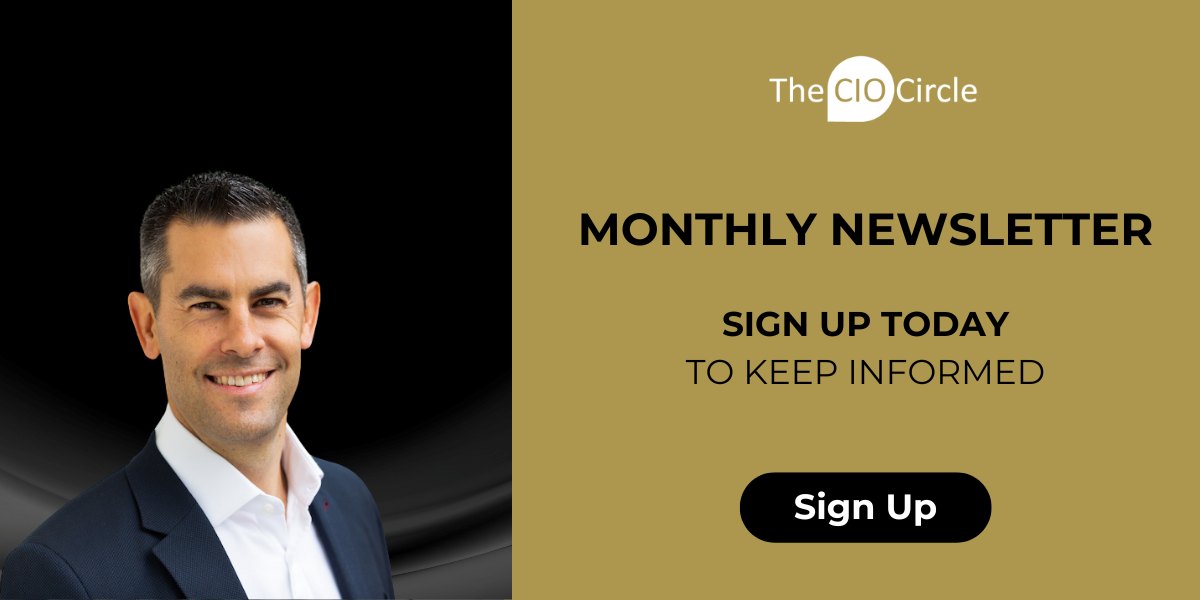PAUL LARNER
Fractional CIO/CTO/IT Director at Freeman Clarke
Can you please provide a little introduction about yourself
I live in Hampshire with my family, but work with several companies in London as their CIO/CTO/IT Director on a fractional basis. This means that I slice my time between each company, essentially working on a part-time basis to develop and implement their IT strategies. I’m currently working with an online retailer (who I have been with for 4 years), a company of Professional Pension Trustees (2 years) and a global Energy and Chemicals Advisory company (1 year).
What has your journey to your position been like? What path have you taken?
Although my interest in technology dates back to the 1970s, and my first home computer was a Sinclair ZX-80, my actual passion was cars. Sadly, my A-levels didn’t go to plan, and I couldn’t study Automotive Engineering at university, so I studied Business & Finance instead. This turned out to be an amazing decision, giving me a great basic grounding in business. I started my career as a dBase programmer with AIG, taking on responsibility for IT support and network management across the Internal Audit division, before moving to The Post Office as IT Manager for their Occupational Health and Welfare business divisions. I took some time out for an MBA, and then went to RBS Insurance to head up IT for their Travel and Pet Insurance businesses. My last full-time role was as an IT Director at International SOS. In 2014, I’d had enough of working with large corporates, and switched my career to working with SMEs and mid-market companies through Freeman Clarke.
Has it always been your vision to reach the position you’re at? Was your current role part of your vision to become a tech leader?
I guess so. I’ve always been interested in how technology can help businesses grow and develop. At AIG, I developed audit software to automate a manual process – instead of auditing a random sample of insurance policies or claims, my software audited all the policies and claims looking for non-compliance, making the audits far more effective. This was my first recognition of how technology could really make a difference to business. My roles have always encompassed developing and implementing IT strategies, although that becomes much harder in larger organisations. Working with SMEs really enables me to make a significant difference with rapidly-developing businesses.
Have you had a role model or mentor that has helped you on your journey?
I’ve had a number of role models over the years. My grandfather was a huge inspiration to me and gave me the confidence to change jobs when I needed to – “Life is too short”, he would say, “to waste doing a job you don’t enjoy”. I have always remembered this throughout my career and passed on to my children. After my A-levels, Tom Tranter (my best friend’s father and a university lecturer) worked through the options with me and recommended Business & Finance as a general qualification. This was amazing advice and probably gave me the best start to my career.
Dr. Steve Boorman, at The Post Office, showed me how technology could deliver huge financial savings for the business, and make a real difference to the lives of postal employees. Finally, Ashley Smith, at RBS Insurance, taught me the importance of focusing on the end customer rather than becoming side-tracked by corporate politics. So many large corporations fail to recognise that they wouldn’t be where they are without their customers. All these people have helped me to get to where I am now.
How do you see the role of the technology leader evolving over the next 5 years?
Technology is key to most (if not all) businesses. The technology leader needs to work with the board to ensure close alignment between the business strategy and technology strategy. The importance of this will only increase over the next 5 years. I’ve worked with a number of companies where the incumbent technology leader thinks they know what is best for the business – in most cases, they are wrong and they are actually holding back the business.
What skills do you think leaders of the future will need in order to thrive?
Business skills will be key. You can’t have a meaningful discussion with a business owner, or the Finance, Marketing or HR Director unless you can speak their language and understand what their drivers are. Communication skills are also important, especially for tech-focused IT leaders who tend to be somewhat introverted – they need to get out and speak with the other departments.
How do you keep current with new skills, technologies and personal development?
I’ve been fortunate to have worked with over a dozen different companies over the last 7 years, each at differing stages of maturity, and this has given me great exposure to different technologies. Within Freeman Clarke, we have an amazing team of IT Directors, CIOs and CTOs who regularly contact each other to discuss the latest technologies. As we have all reached the same level, there are no egos in the room, and we are comfortable asking the daft questions. It is a truly refreshing change from corporate life, which can be very lonely at the top.
What do you see as the next leap in technology that will impact your business or industry in particular?
That’s a difficult one to predict. There are so many technologies on the near horizon – Artificial Intelligence, Machine Learning, Robotic Process Automation, Driverless Transportation. Some technologies will benefit some businesses and industries more than others. Over the last 2 years, we’ve seen dramatic shifts in working practices that have impacted all the companies I work with. We’ve been working from home, using video conferencing and collaboration tools, to carry on work as if we were in the office. I think this will continue – if remote working works for the business, then it helps the work/life balance, and you can recruit employees anywhere.
"Look on everything as experience, and if you don’t like what you’re doing, get out – you’re probably not the best person for that job."
If you were mentoring a leader of the future, what advice or guidance would you give to help them on their way?
Don’t plan a career path too much. Look on everything as experience, and if you don’t like what you’re doing, get out – you’re probably not the best person for that job. Remember that everyone below you probably knows more than you do; be proud of your team, not worried by them. As a leader, your role is not to know everything, but to know who does, and to make sure that every team member can work to their best potential.
Is there anything in particular that you would still like to achieve in your career or what is the next step on your journey?
I’ve found myself in a position where I am working with great people at great companies, and I can adjust the number of clients to suit my work/life balance. I love what I do and who I work with, and I’m not sure anyone could wish for more? I’ve always had an interest in law (which I’m proud that my eldest daughter chose to study), so I might do some part-time study in that area in the future.
If you could change one thing in the world, what would it be?
I’d like to see global internet access, and for the infrastructure to be open (like roads are) and not owned by individual companies. No company would install connectivity where it is unprofitable so there needs to be a separation between the infrastructure and the service providers. Governments need to take responsibility for a national fibre infrastructure. We have 5G in parts of London but no 2G/3G in some parts of the countryside – if there was a national infrastructure, all the mobile carriers could use it.
A big thank you to Paul Larner from Freeman Clarke for sharing his journey to date.
If you would like to gain more perspective from Tech Leaders and CIOs you can read some of our other interviews here.
December 8, 2021


